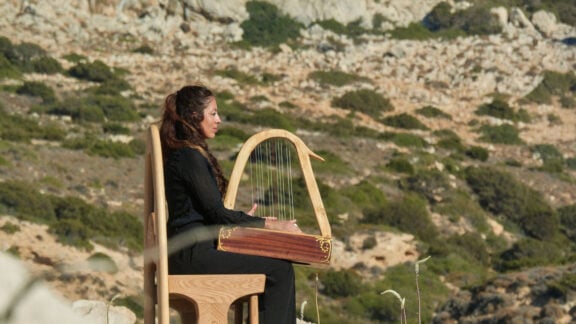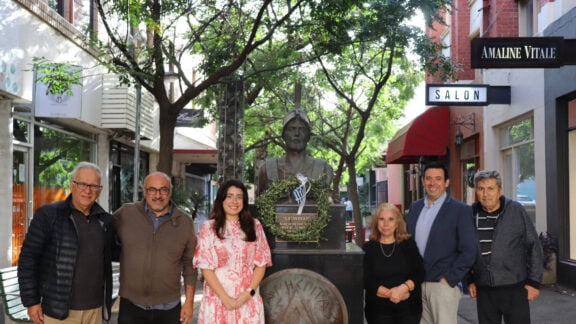The tragic death of a young Greek-Australian, who fell victim to a flawed mental health care system, could lead to a positive change to South Australia’s mental health laws.
This is the aim of a grieving father, Jack Papageorgiou, who saw his 27-year-old son, Theo, pay the ultimate price after an inquest found he was misdiagnosed and that his death was preventable.
Theo had great struggles with his mental health which came to a head in January 2016 as he frequently sought medical help from doctors, psychologists and psychiatrists.
“My 27-year-old son was grabbing and kissing my hand, telling me ‘I love you, dad, I’m sorry, dad’, waking up in the morning in distress and saying ‘the medication’s not helping me but if you want me to take it, I’ll take it’,” Theo’s father, Jack, told Neos Kosmos.
Theo had two visits to the emergency room in Berri three days apart, on January 14 and on January 17, though both times he was sent home, with the second instance particularly distressing to Mr Papageorgiou.
“If he had read his file, he would have seen Theo was there three days ago. He’s under the care of mental health. That doctor failed his duty of care. He should have admitted him into the hospital because he’s been here twice in three days. Obviously, we have an emergency,” Mr Papageorgiou said.
After reaching out to mental health helplines Lifeline and Beyond Blue, the family then went to Adelaide to visit a psychologist who they claim showed little concern for what Theo was going through.
“Forty-five minutes later, Theo rang me and said ‘I’m finished. He told me that I’m in the hole that I’ve dug myself’,” Mr Papageorgiou told Neos Kosmos.
“My wife and I went in to see him [psychologist] and I said to him ‘How hard was it for you to tell Theo ‘I’m glad you’re down here today. Sorry I couldn’t help you on Sunday but you and I are going to work together, going to trust each other, have a long journey, grab him by the hand and tell him you’re going to get better’.”
Theo tragically committed suicide soon after these events. Upon inquest in 2021 discovered that he was misdiagnosed and that his death was preventable.
“It was identified [sic] that one of the drugs he was prescribed that was found in the autopsy report with a high-level reading, is a medication that should only be provided if someone is admitted to the hospital and is under supervision 24 hours a day,” Theo’s father said.
“The medication the doctor prescribed him gave him side-effects and suicidal thoughts. He sent him home!”.

The 12-day inquest made it necessary for Mr Papageorgiou to appoint a barrister at a cost of $70,000 and although they applied to the then state government for financial support, they were declined.
“I didn’t accept that and so I tried to get a meeting with Vickie Chapman (then-deputy premier of South Australia), and then in the end she sent me an email again sending her condolences but reiterating that she wasn’t prepared to support us financially,” he said.
“The next paragraph said, ‘By the way, during your son’s inquest, go get yourself some counselling’. What a f***ing insult!,” Mr Papageorgiou exclaimed.
Mr Papageorgiou is staunch in his belief that the mental health sector is a “failing system”, but cautiously welcomed a review currently taking place, led by Olga Pandos.
“We have been involved with that review and there has been a recommendation to the Health minister, Chris Picton, and we are currently trying to arrange a meeting with him in the next week or so,” said Mr Papageorgiou.
One of the chief findings observed is a particular problem in the ability to share information regarding patients’ medical history, particularly in rural and remote hospitals and services.
The meeting with Mr Picton is set to discuss the many proposed recommendations and suggestions for the Mental Health Act.
According to his father, Theo was a very proud man who grew up with his Hellenic culture, with aspirations to work as a vineyard farmer on a property he had purchased before his death.
Mr Papageorgiou reminisced on an encounter between Theo and his grandmother in which she had the heater off in order to save money.
“He turned to her and said ‘You turn the heater on, γιαγιά, and I’ll pay the bill’,” Mr Papageorgiou said.
Another memory emerged which centred around Theo’s sister wherein she went out to a restaurant once and after he found out, he called the place and paid her bill over the phone.
Theo would extend this selflessness to others as well, with Mr Papageorgiou recounting a story where, during a drive in 2015, they saw a young girl by a Ute that was parked on the side of the road.
After discovering she had missed her turn and was out of petrol, they drove 50 kms to get a jerry can of petrol before going back, filling the ute, testing it to make sure it started, and giving her directions on how to get back to town.
Theo, as many will attest, was an unfailingly kind and generous person who was always looking to help, and he will forever be remembered as such.








